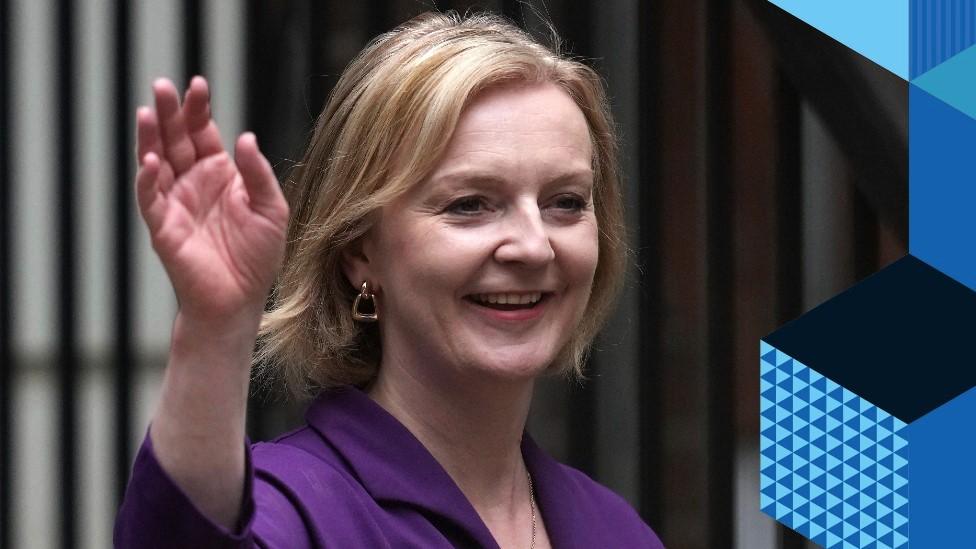Boris Johnson urges Tories to get behind Liz Truss in farewell speech
- Published
- comments
'This is it, folks' - Boris Johnson's speech in full
Outgoing Prime Minister Boris Johnson has urged Conservatives to get behind his successor Liz Truss during a "tough time", in his farewell speech.
Mr Johnson has met the Queen at Balmoral Castle in Scotland, where he tendered his resignation as PM.
Ms Truss has been formally appointed by the British monarch, before making her first speech as prime minister.
The UK's third female prime minister will announce her cabinet later.
Her victory in the Tory leadership contest on Monday marked the end of Mr Johnson's turbulent premiership, less than three years after the Conservatives won a landslide in the 2019 general election.
In the face of a mounting economic crisis, Mr Johnson's successor has promised immediate action to deal with soaring energy prices, as well as tax cuts aimed at staving off a recession.
Her plan, due on Thursday, is expected to include a freeze on energy bills worth billions of pounds, but the details of that policy are yet to be announced.
Simon Clarke, who backed Ms Truss for the leadership and is tipped to become levelling up secretary, told the BBC he was anticipating "a major intervention" on energy bills.
He said energy "will be the government's most immediate priority upon entering office" and insisted the commitments Ms Truss made during the campaign on tax "still absolutely stand".
In his speech, Mr Johnson alluded to the ominous challenges Ms Truss will inherit when she takes office, acknowledging that this was "a tough time for the economy".
"This is a tough time for families up and down the country," Mr Johnson said in front of No 10 Downing Street. "We can and we will get through it and we will come out stronger the other side."
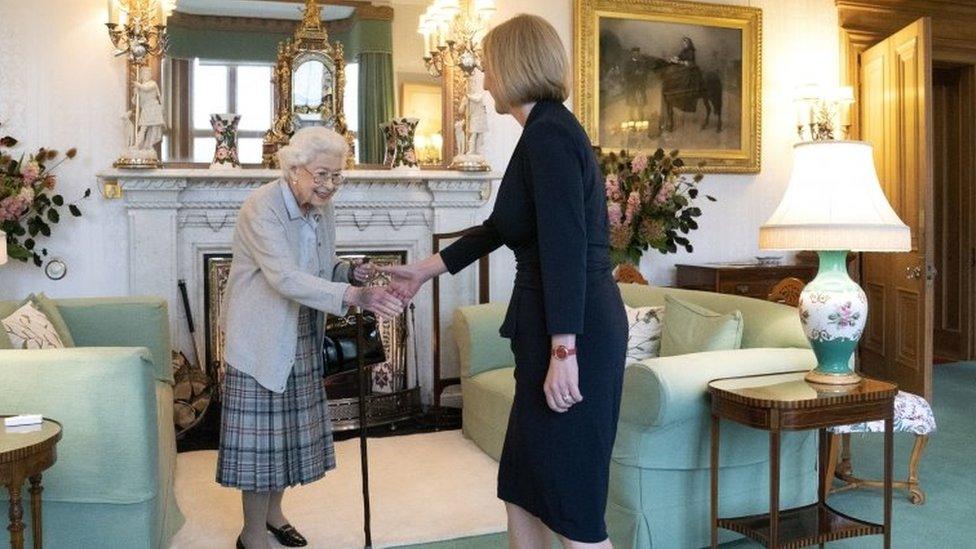
The Queen met her new prime minister at Balmoral
In a pointed plea to his Conservative colleagues following a fractious party leadership race, Mr Johnson said "it's time for politics to be over, folks".
"It's time for us all to get behind Liz Truss and her team and her programme and deliver for the people of this country," he said.
Paying tribute to his colleagues in government, Mr Johnson said they were the people who "got Brexit done", delivered "the fastest vaccine rollout in Europe", and "organised those prompt supply of weapons to Ukraine".
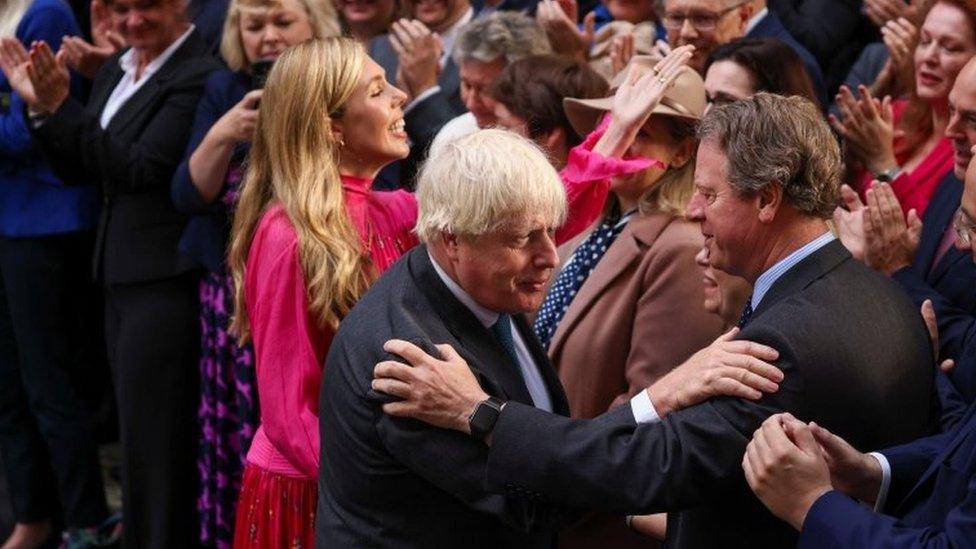
Boris and Carrie Johnson bid goodbye to friends and supporters in Downing Street
Reflecting on the future of his career, Mr Johnson compared himself to "one of those booster rockets" that "has fulfilled its function".
"I'll be gently re-entering the atmosphere and splashing down invisibly in some remote and obscure corner of the Pacific," he said.
He then likened himself to Cincinnatus, a Roman statesman and military leader who battled against an invasion before returning to his farm.
Some classics scholars pointed out Cincinnatus came out of retirement for a second term as leader of Rome.
Mr Johnson has not said publicly said what he will do after leaving office but there is speculation that he will remain as an MP for his Uxbridge and South Ruislip constituency.
His former adviser Will Walden told the BBC's World At One he did not believe Mr Johnson would return to frontline politics.
"That is for two reasons - I don't think the Tory Party is used to going back in time... but more than anything, he needs to earn some money and he needs to move on," he said.
Mr Walden suggested Mr Johnson was dropping hints he could return because he wanted to "rewrite the narrative... suggesting he still has a role to play and has been hard done by is part of that narrative".


As Mr Johnson and his wife Carrie head to Balmoral, there's time to unpick some of the words he chose to use to mark his departure.
There was an extensive assembly of what he saw as his greatest hits: the coronavirus vaccine programme, Brexit and support for Ukraine among them.
And then there were those references to the future: one wrapped in the imagery of space exploration; the other in classicist comparison.
Will Mr Johnson really "splash down invisibly in a remote corner of the Pacific"?
Err… no. Every syllable Mr Johnson utters, out loud or in print, will magnetically allure the cameras, microphones and reporters; it has been his greatest skill throughout his career: commanding attention.
In short, Mr Johnson is leaving office but won't leave the stage. We'll hear from him again.

Mr Johnson's premiership was marred by a string of controversies that gradually cranked up political pressure and discontent within his own party.
In June this year, Mr Johnson won a vote of no confidence in his leadership, but even then many Tory MPs remained resolved to turf him out of office.
His downfall as Tory leader and prime minister was sealed following a ministerial mutiny in July, triggered by the dramatic resignation of then-Chancellor Rishi Sunak and health secretary Sajid Javid.
Mr Johnson resisted calls to quit - including from his newly appointed Chancellor Nadhim Zahawi - for 48 hours, until it became clear that he had lost the confidence of his party and his position was untenable.
Once Mr Johnson resigned as Tory leader, party members took part in a ballot to replace him and elected Ms Truss, who beat her rival Mr Sunak with 57% of the vote.
Labour's deputy leader Angela Rayner said Mr Johnson had left a legacy of "scandal" and urged his successor to fund a freeze on energy bills by adopting the party's plan for a windfall tax on gas and oil companies.
Liberal Democrat leader Sir Ed Davey called for a "genuine freeze" of energy bills as opposed to "the loan system that it's rumoured that Liz Truss wants".
And SNP Westminster leader Ian Blackford said a general election should be held because Ms Truss appeared to be making policy proposals she does not have an electoral mandate to implement.
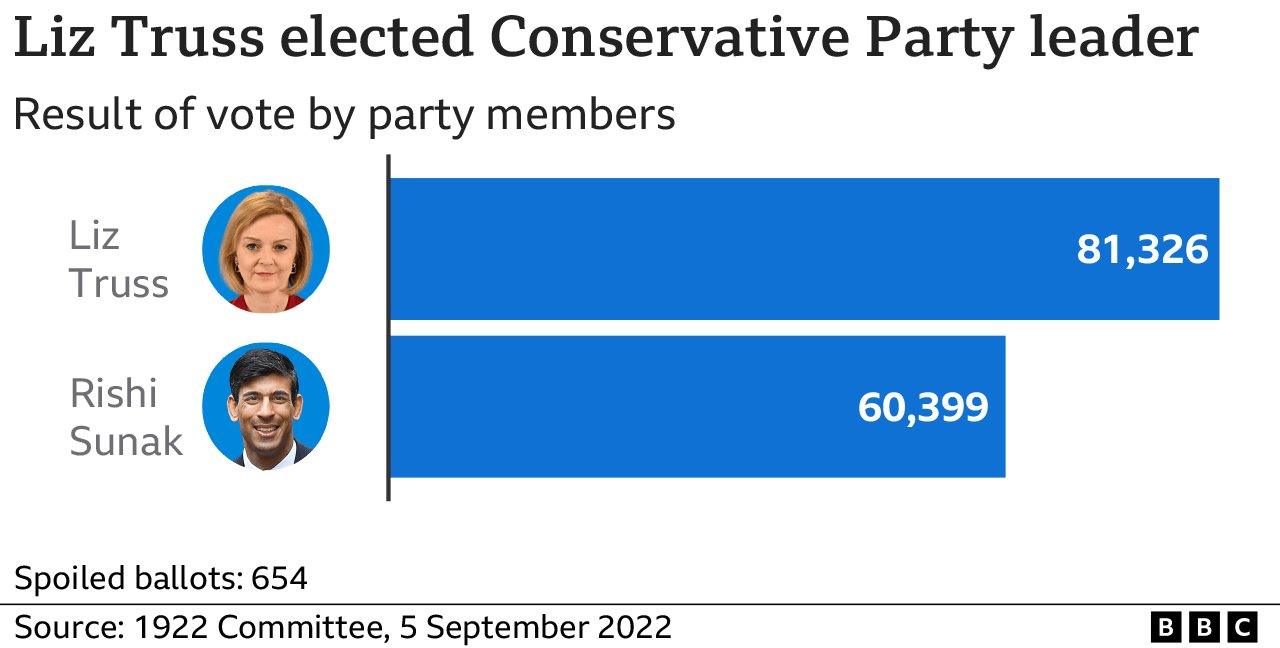
Ms Truss and Mr Johnson have made the 500-mile trip to Balmoral separately to have their audiences with the Queen and complete the ceremonial transition of power.
Traditionally, the handover of power is done at Buckingham Palace, but the Queen - who has been suffering from mobility issues - decided to conduct the leadership succession from her Balmoral retreat.
The Queen will invite Ms Truss - as the leader of the largest party in Parliament - to form a government, making her the monarch's 15th prime minister.
She will then head back to London to deliver her first speech as prime minister, which is expected to take place outside 10 Downing Street - weather permitting.
Beyond that, Ms Truss will finalise appointments to top jobs in her cabinet before facing MPs for the first time at Prime Minister's Questions on Wednesday.
Those predicted to join her cabinet include Kwasi Kwarteng as chancellor, former leadership rival Suella Braverman as home secretary, and James Cleverly as foreign secretary.
Home Secretary Priti Patel and Culture Secretary Nadine Dorries have stepped down as senior ministers, with other members of Mr Johnson's team expected to follow.
Meanwhile, Ms Truss has started filling key advisory positions and reorganising how her Downing Street team will work.
Former Conservative leader Iain Duncan Smith told the BBC's World At One that he had been offered a job in Ms Truss's cabinet but turned it down in favour of staying on the backbenches.
Related topics
- Published6 September 2022
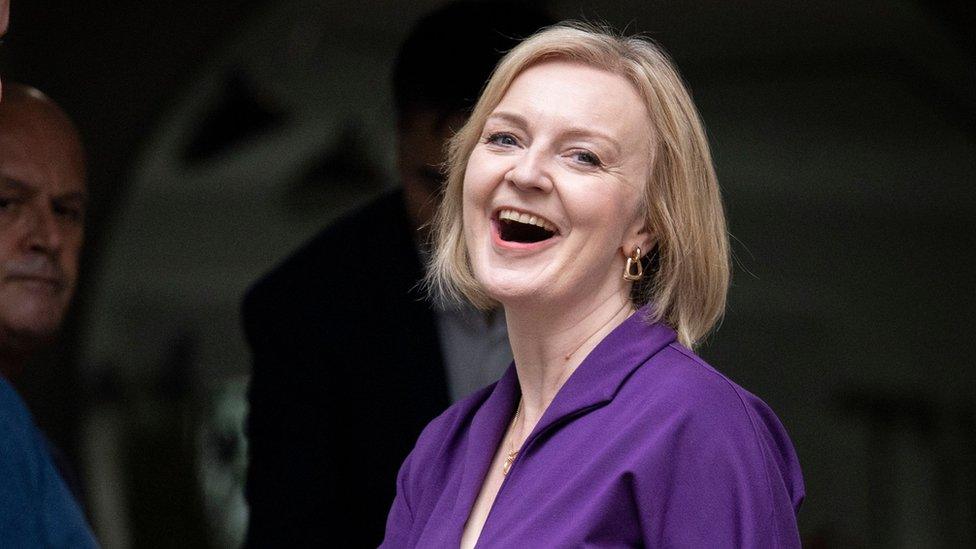
- Published5 September 2022
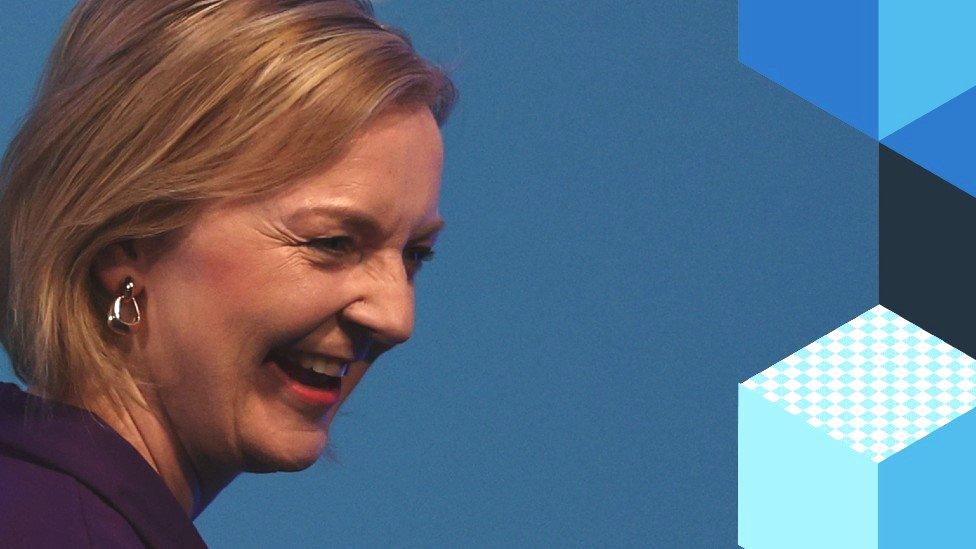
- Published5 September 2022
